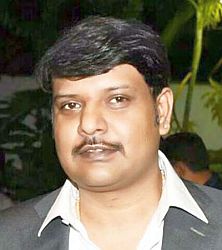
Bengaluru, Jul 30: Karnataka Chief Minister Siddaramaiah's son, Rakesh Siddaramaiah, died of multi-organ failure at a hospital in Belgium today, official sources said.
Rakesh, aged 39, was undergoing treatment at Antwerp University Hospital in Brussels, where he was rushed on Tuesday after he developed sudden pancreas-related complications. He had been on a European tour with his friends since last week.
Rakesh, the eldest son of Siddaramaiah, who had an acute pancreatic ailment for long, was critical but stable before his condition worsened, the sources said.
"Rakesh died of multi-organ failure," the Chief Minister's Office said. Siddaramaiah, his wife and second son Yathindra Siddaramaiah, a doctor, and the family doctor were in Brussels to be with Rakesh. He is survived by his wife, a son and daughter.
He had met with an accident 15 years ago, when he suffered injuries to his pancreas.
Soon after his son was hospitalised, Siddaramaiah had spoken to External Affairs Minister Sushma Swaraj, seeking her assistance in getting the best treatment for his son in Belgium.
Also Read:
Son dead, but they' show no sympathy for CM Siddaramaiah
I can understand Siddu's pain, I too have lost my son: Sadananda Gowda





.jpg)
.jpg)
.jpg)
Comments
Ee lost one good ruller
We lost one good leader
Condolence......
Shocking, heartfelt condolence to the Siddaramaiah and family
Really Shocking, RIP Sir.
RIP
So sad! May God help CM and his family to over come the grief....
Rakesh sir was supposed to contest in next assembly polls. His demise is a great loss not only for Siddairamaiah family but also for Congress, party, Kuruba community and entire Karnataka. RIP
RIP. very tragic news.
Add new comment